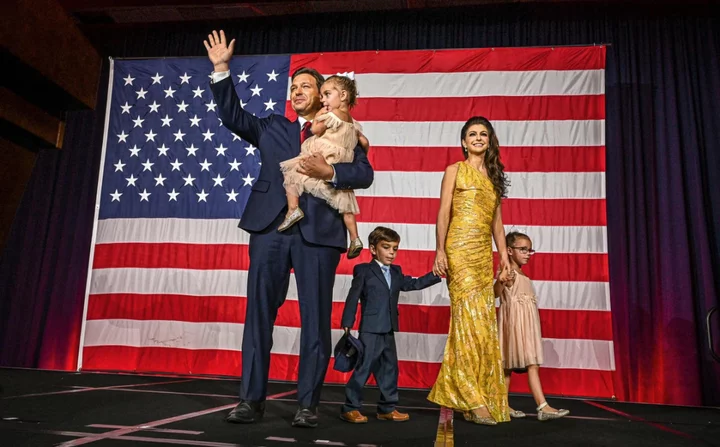
Ron DeSantis officially files to run for president in 2024
Ron DeSantis is officially running for president, having filed his statement of candidacy with the Federal Election Commission on Wednesday. The long-awaited move by the Florida governor follows a campaign announcement video released a day earlier by his wife, Casey, on Twitter. His filing was first reported by The Associated Press. Mr DeSantis is expected to address voters in his first appearance as a candidate for president later Wednesday evening in a Twitter space hosted by Elon Musk ally David Sacks. He will then appear on Fox News for an interview immediately afterwards with Bret Baier. The rising Republican star is in his second term as governor of the trending-red Sunshine State, having won reelection by double digits just last year. He previously won election to office in 2018 by a fraction of a percentage point. He enters the race with one key label tied to his campaign already: The second-place challenger, thanks to months of polling that have shown him firmly behind Mr Trump in a Republican primary matchup. That same polling has shown him consistently in the double digits, however, which is more than can be said for his other Republican rivals — Nikki Haley, Tim Scott, Asa Hutchinson and others. Mr DeSantis’s official launch also signals a likely shift in strategy. Whereas for months the governor has sought to avoid a direct confrontation with Mr Trump, that now is unavoidable, even without the near-constant barrage of attacks that his now-official rival has been lobbing his way. That strategic shift has been hinted at for some time now, with a DeSantis-aligned PAC even swiping directly at the former president following his CNN town hall earlier this month. It isn’t clear whether the Jacksonville native, 44, will be successful in his bid to oust Mr Trump as de facto leader of the GOP. But he heads into the 2024 race with all the structural advantages he could possibly hope for: A sympathetic if not outright supportive GOP establishment, a national voter base that has indicated time and time again it does not wish for Mr Trump (or, for that matter, Mr Biden) to run again, and a political pedigree that seems almost lab-generated for a presidential run. He previously served in the House of Representatives as a founding member of the Freedom Caucus, and before that was a lawyer for the US military. During his service, Mr DeSantis was stationed at Guantanamo Bay before later being part of the 2007 Iraq troop surge which saw him playing legal adviser to a US commander in Fallujah. More follows... Read More Can Ron DeSantis beat Donald Trump? These Florida political veterans aren’t so sure The War on Terror turned Ron DeSantis into Florida’s anti-woke warrior. Can it win him the White House? Everything we know about Ron DeSantis’ policies as he launches 2024 campaign
1970-01-01 08:00
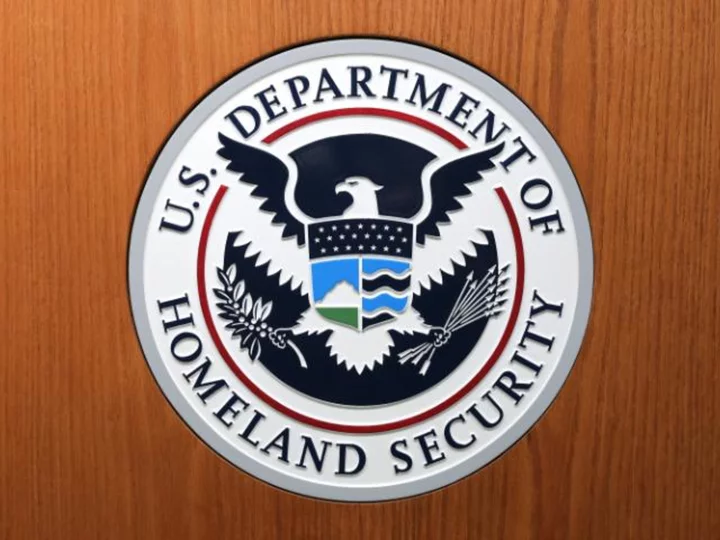
US remains in 'heightened threat environment' with recent racist and ethnically motivated attacks, DHS says
The US remains in a "heightened threat environment" for terrorism driven by a series of racially and ethnically motivated attacks or plots in recent months, the Department of Homeland Security said Wednesday in a public advisory.
1970-01-01 08:00
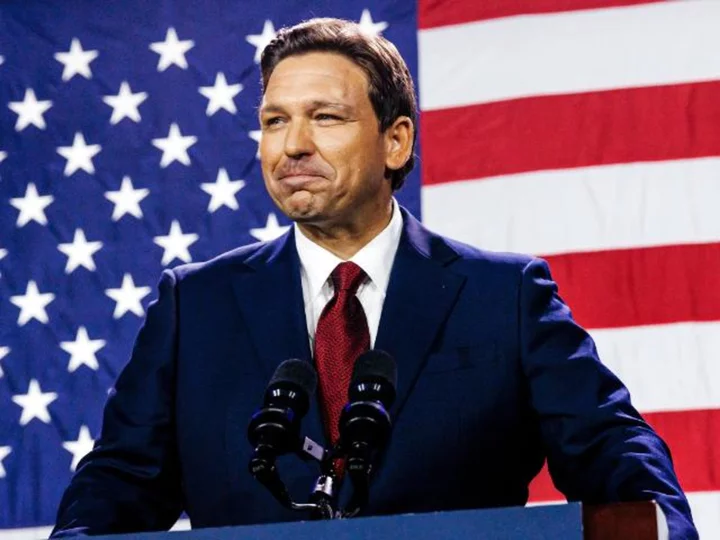
Florida Gov. Ron DeSantis files to run for president in 2024
Florida Gov. Ron DeSantis, whose clashes with Disney and aggressive pursuit of conservative victories has made him a leading Republican Party figure, has filed to run for president in 2024.
1970-01-01 08:00
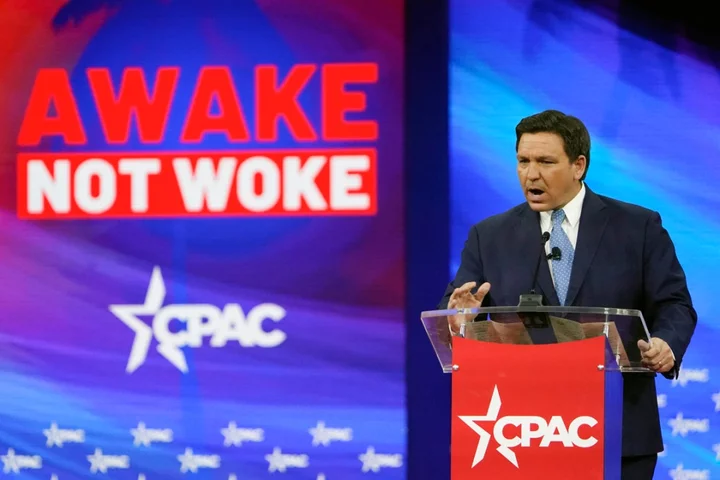
Everything we know about Ron DeSantis’ policies as he launches 2024 campaign
As Florida Governor Ron DeSantis prepares to announce his official bid for president of the United States, Americans are getting a taste of what a future under Mr DeSantis could look like. For months, Mr DeSantis, 44, has been called a possible frontrunner for the GOP nomination in the media because of his reputation for passing conservative legislation and comfortable re-election to the governor’s mansion. From passing a six-week abortion ban to eliminating concealed carry permits, Mr DeSantis has proven he is willing to pass controversial legislation in the name of uniting the state under right-leaning values. And the Florida governor seems to be hoping for the same if he were to become US president. Here’s what Mr DeSantis has said about the future of the US and what he thinks of certain policies. On abortions Mr DeSantis is anti-abortion, believing “The right to life is the most foundational of our God-given rights.” In April, Mr DeSantis quietly signed Senate Bill 300, known as the “Heartbeat Protection Act”, which prohibits abortions after six weeks of gestation with the exceptions to save a woman’s life, a fatal fetal abnormality or in the event of rape or incest so long as the woman can provide documentation such as a police report. The six-week ban will only go into effect 30 days after the Florida Supreme Court rules on a challenge to the state’s current 15-week ban under House Bill 5 which Mr DeSantis signed into law last year. Should SB 300 go into effect, it would make Florida one of the most restrictive states for women to access reproductive healthcare like abortions. On the Supreme Court While giving a speech at the National Religious Broadcasters Convention in May, Mr DeSantis advocated for the Supreme Court to become more conservative by replacing moderate or left-leaning justices with conservative jurists. Citing Justices Clarence Thomas and Samuel Alito as “the gold standard for jurisprudence”, Mr DeSantis said in the future the court should “fortify” itself with the addition of two like-minded Justices. “It is possible that in those eight years we would have the opportunity to fortify Justices Alito and Thomas, as well as actually make improvements with those others,” Mr DeSantis said. “If you were able to do that then you would have a 7-2 conservative majority on the Supreme Court that would last a quarter century, so this is big stuff.” On gun control Mr DeSantis is against gun control, having received an A+, the highest rating, from the National Rifle Association (NRA) “Ron DeSantis vigorously opposes gun, magazine and ammunition bans,” the NRA said. In April, Mr DeSantis signed House Bill 543 into law, eliminating the requirement for permits to carry concealed weapons. On LGBT+ Rights The Humans Right Campaign, one of the state’s largest LGBT+ rights advocacy groups, and Equality Florida issued a traveling warning to those in the LGBTQ+ community in May. “While not a blanket recommendation against travel nor a call for boycott, the travel advisory outlines the devastating impacts of laws that are hostile to the LGBTQ community, restrict access to reproductive health care, repeal gun safety policies, foment racial prejudice, and attack public education by banning books and censoring curriculum in order that prospective travelers or residents can make the best decisions for themselves and their families,” the press release said. One of Mr DeSantis’ most controversial legislation, House Bill 1557, involves restricting LGBT+ rights in education. The legislation, dubbed the “Don’t Say Gay” bill, prohibits classroom education or instruction involving gender identity or sexual orientation. Mr DeSantis has also signed legislation that prohibits transgender people from using public facilities that align with their gender identity and one that prohibits children from attending “adult live performances” like drag shows. On Covid restrictions The Florida governor first made headlines during the pandemic when he emerged as a leader who vehemently opposed Covid-19 protocols like mask mandates, social distancing and vaccine requirements. “Federal vaccine mandates and restrictions were never about protecting Americans from a virus, they were exercising control at the expense of the American economy and the American way of life,” Mr DeSantis said in a press release. Mr DeSantis received harsh criticism from the public for refusing to implement restrictions that were proven to stop the spread of the virus. Read More Ron DeSantis news – live: Florida governor’s 2024 ad mocked for British accent as Twitter launch event nears Ron DeSantis 2024: Everything we know about the Florida governor’s presidential bid DeSantis v Disney: Why Florida’s governor is at war with the Mouse Live view outside Miami hotel where DeSantis expected to launch election campaign Can Ron DeSantis beat Donald Trump? These Florida political veterans aren’t so sure Florida school bans poem recited by Amanda Gorman at Biden inauguration
1970-01-01 08:00
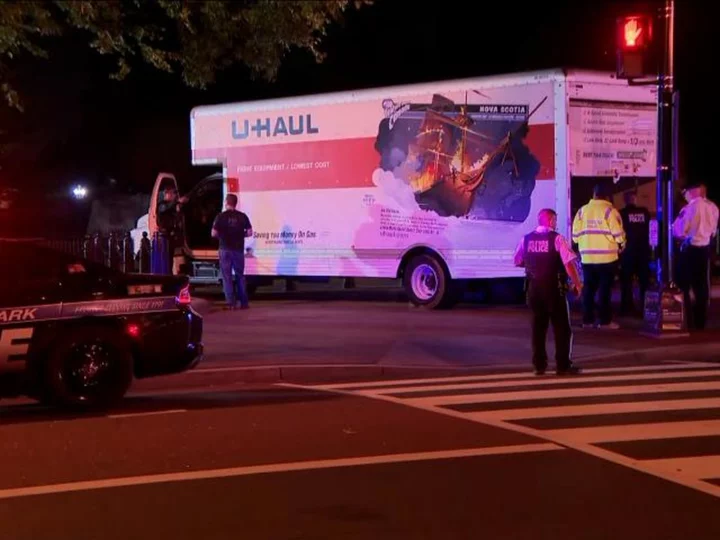
Suspect in U-Haul crash near White House will remain detained pending hearing next week
Sai Varshith Kandula is not a US citizen or a lawful permanent resident, prosecutors said.
1970-01-01 08:00

Trump and allies plan effort to upend DeSantis 2024 announcement
Donald Trump and his allies are planning a coordinated effort to upend the media cycle around the presidential campaign launch of Florida Gov. Ron DeSantis, which will include videos and a social media blitz leaning on high-profile, Trump-aligned conservative commentators, sources familiar with the plans told CNN.
1970-01-01 08:00
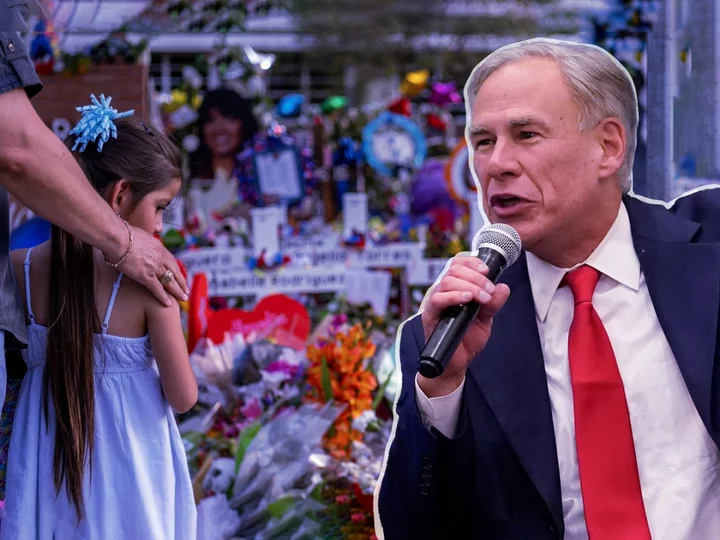
How Greg Abbott met the murders of 21 children and teachers in Uvalde with silence
It’s now been one year since moms and dads dropped their children off at Robb Elementary School in Uvalde for the very last time. It’s been one year since 21 of those young students and their heroic teachers were shot dead in their classrooms. And it’s also been one year since Texas Governor Greg Abbott began ignoring the desperate pleas for action from the victims’ families. On 24 May 2022, 18-year-old gunman Salvador Ramos entered Robb Elementary School armed with a legally purchased AR-15 and murdered 19 students aged between nine and 11 years old and two teachers. The massacre horrified the nation, marking one of the deadliest mass shootings in American history. Since then, the families have been begging Texas officials to take action and tighten the state’s gun laws – gun laws that are among the weakest in the nation. But, for the last 12 months, it has all fallen on deaf ears. Despite their desperate pleas, Mr Abbott refused to call a legislative session to even discuss the possibility of introducing gun safety measures all the while he continues to enjoy his longstanding, cosy relationship with the National Rifle Association (NRA). Mr Abbott’s action – or inaction – over the mass shooting fell under scrutiny almost immediately after the 24 May tragedy. When news of the shooting reached him in Abilene, where he was holding a press conference about wildfires, instead of rushing to Uvalde, he continued with his plans to attend a fundraiser to drum up donations for his re-election campaign. Initially, Mr Abbott claimed that he only stopped by the campaign fundraiser in Huntsville to “let people know that I could not stay, that I needed to go”. But this version of events fell apart two months later when campaign finance reports and flight-tracking records, obtained byThe Dallas Morning News, revealed that he actually stayed almost three hours at the event. While devastated parents were receiving the worst possible news, Mr Abbott was raising up to $50,000 in campaign funds. Call logs, released by state Senator Roland Gutierrez, showed that Mr Abbott only accepted three calls from Texas DPS Director Steve McCraw on 24 May, with the two men speaking for less than 30 minutes about one of the deadliest mass shootings in US history on the day of the massacre. In the weeks after the shooting, Mr Abbott also came under fire when he was a no-show at the funerals for each of the 21 victims. When scheduling records exposed his absence, Mr Abbott’s office responded by saying he had sent flowers and condolences to the families and had visited every family who had requested a meeting. Then there was his change in messaging about what happened that day. One day after the massacre, Mr Abbott gave his first public address in which he heaped praise on the “amazing courage” of law enforcement officers on the scene. He told the community that had just lost 21 members that “it could have been worse”. “It could have been worse. The reason it was not worse is because law enforcement officials did what they do,” he said. This turned out to be false. In the days and weeks after the shooting, it emerged that almost 400 officers waited a staggering 77 minutes before breaching the classroom as the gunman continued his murderous rampage and wounded victims bled to death. The police response has now been branded an “abject failure,” one in which officers on the scene prioritised their own safety over saving the lives of the victims. Mr Abbott later fumed that he had been “misled” by unidentified “public officials” before making his speech. Three days on from the shooting, the governor spoke out again – this time giving two vastly different speeches with two dramatically conflicting messages on the topic of gun safety. That Friday, Mr Abbott had been due to speak on stage at the NRA convention in Houston. In light of the shooting, he pulled out of the event – but not before sending a pre-recorded video message to be played on stage. In that speech, he undermined the importance of gun safety laws, claiming they have no impact on reducing gun violence. “There are thousands of laws on the books across the country that limit the owning and using of firearms, laws that have not stopped madmen from carrying out evil acts on innocent people in peaceful communities,” he said. “In Uvalde, the gunman committed a felony under Texas law before he even pulled the trigger. It’s a felony to possess a firearm on school premises. But that did not stop him.” The message – a show of defiance that he had no plans to tighten the state’s already weak gun laws – aired at the same time as he was telling the grieving Uvalde community that he “absolutely” expected new laws to be passed in response to the tragedy. “With regard to a special (legislative) session, let me just say this: all options are on the table,” he said. “Do we expect laws to come out of this devastating crime? The answer is absolutely yes. And there will be laws in multiple different subject areas. There will be committees formed, there will be meetings held, there will be proposals that will be derived, many of which will lead to laws that will be passed in the state of Texas.” Over the next year, Mr Abbott ignored ongoing requests from Uvalde officials to call a special legislative session to at least discuss the possibility of gun reform in the state. State Representative Tracy King and Mr Gutierrez – the two Texas lawmakers who represent Uvalde – urged the governor to call the session. State Democrats said they would support proposals including raising the minimum age to buy semi-automatic assault rifles from 18 to 21, creating red flag laws, introducing a 72-hour “cooling off” period for gun purchases and regulating private gun sales. Grieving family members begged for change, calling — at the very least — for a raise in minimum age to purchase assault weapons. Time after time, their pleas were ignored. Instead of acknowledging that the state’s weak gun laws may have played any part in the massacre (the 18-year-old gunman legally bought two AR-15s just days after his birthday), Mr Abbott pointed the finger at mental illness and school safety and insisted that raising the minimum age to buy would be “unconstitutional”. He claimed he took several other actions to “support the Uvalde community and make schools safer” including providing 30 law enforcement officers to the school district campuses for the new school year, $105.5m in funding for school safety and mental health services – as well as roping in Chuck Norris to front a programme to report suspicious behaviour at schools. None of the actions involved restricting access to firearms. Even during his race to hold onto his gubernatorial seat in the midterms, Mr Abbott refused to move the needle on the gun control debate. Family members who lost loved ones in the Uvalde massacre threw their support behind his Democratic rival Beto O’Rourke – including featuring in a gutwrenching ad campaign. Behind Mr Abbott, of course, was the NRA. Data compiled by Giffords showed that Mr Abbott received $20,700 in career gun lobby contributions – one of the highest of all candidates in gubernatorial races. His close relationship with the NRA was perhaps most evident when in June 2021 – less than one year before Uvalde – he signed a bill into law allowing Texans without a licence to open carry handguns. Standing at his shoulder at the bill signing were NRA CEO Wayne LaPierre and NRA president Carolyn Meadows. In November, less than six months after the state endured the worst school shooting in its history, Texans chose to re-elect Mr Abbott as governor for a third term. In the weeks and months leading up to the one-year anniversary of the Uvalde mass shooting, Texas has been rocked by several more mass shootings. On 28 April, five people – including a nine-year-old boy – were shot dead in a horror attack at a home in Cleveland. Days later, on 6 May, eight people were killed and seven injured when a neo-Nazi gunman went on a shooting rampage at an outlet mall in Allen. And again, nothing changed. Then on the one-year anniversary of the state’s worst mass shooting in history, Mr Abbott did announce some action: A moment of silence. Flags lowered to half staff in Texas. But still no attempt to tackle the state’s problem with gun violence. Read More Uvalde father warns lawmakers not to pay tribute to his son today New video from Uvalde massacre shows police officers vomiting and sobbing after discovering victims Uvalde victim's mother perseveres through teaching, connecting with daughter's memory
1970-01-01 08:00

Russian accused of money laundering lobbies to be included in potential US-Russia prisoner swap
Lawyers for an accused Russian money launderer in US custody are lobbying for their client to be included in any potential US-Russia prisoner swap for detained Wall Street Journal reporter Evan Gershkovich, according to new court filing.
1970-01-01 08:00
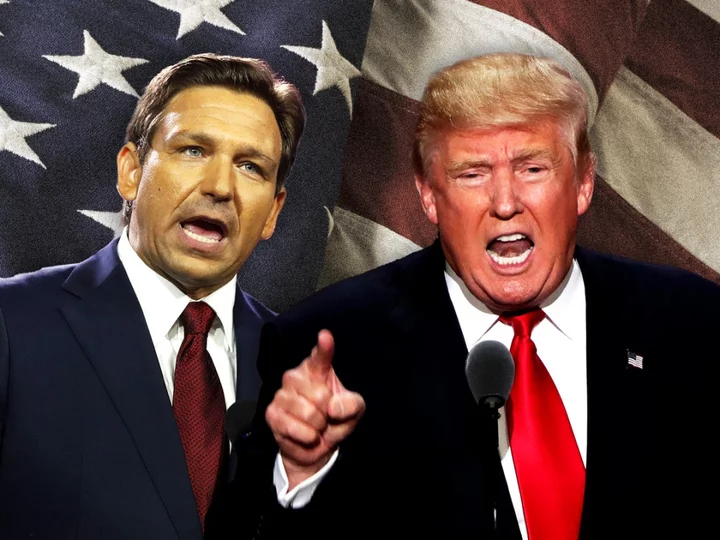
Can Ron DeSantis beat Donald Trump? These Florida political veterans aren’t so sure
He’s a ubiquitous presence in conservative media with a reputation as an anti-woke warrior who has used a compliant state legislature to make Florida a mecca for Trump-era Republicanism. But if Ron DeSantis wants to be president, he has to defeat Donald Trump and Joe Biden, and prominent Florida politicians aren’t so sure either of those things will ever happen. The second-term Florida governor, who for months has sojourned through the traditional primary battlegrounds of Iowa and New Hampshire while hawking his manifesto-cum-memoir The Courage to be Free, was once seen as a formidable obstacle to the twice-impeached ex-president’s dream of reclaiming his place in the White House. But in the weeks since Mr Trump found himself on the wrong end of an indictment from a New York grand jury, the Florida governor has seen his standing in the polls tumble while his fellow Floridian has surged to a commanding lead among GOP primary voters. Still, Mr DeSantis is poised to launch a presidential presidential campaign that has support from a decent chunk of his party and a formidable war chest transferred from his successful re-election run last year. He gained that support — and a national profile — by winning the hearts and minds of some former Trump boosters through his wholehearted rejection of any and all restrictions or mandates meant to contain the Covid-19 pandemic, and he has kept his core support among some GOP diehards by using a compliant state legislative majority to enact a laundry list of conservative priorities and use resulting culture war battles to raise his profile even further. A Republican media strategist who worked on Mr Trump’s 2020 campaign, Giancarlo Sopo, told The Independent he believes Mr DeSantis is “the obvious choice” to lead the GOP in next year’s election because of what he described as the Florida governor’s role in enacting “the boldest conservative agenda this country has seen since Ronald Reagan” and Mr DeSantis’ “unique ability to demoralize and defeat the left”. Yet Mr Sopo’s confidence in Mr DeSantis’ abilities wasn’t shared by many Florida GOP veterans contacted by The Independent. None of the Florida-based operatives would speak on the record for fear of alienating the governor, who has earned a reputation for vindictiveness during his five years in Tallahassee. But the consensus opinion among the GOP political strategists, many of whom have had a hand in national campaigns of years past, was that the governor’s reputation as a lib-triggering prizefighter is a carefully manufactured façade — a recent invention that is a fabrication formed by a coterie of combative press aides and sympathetic media outlets. Mr DeSantis’ reinvention as a woke-battling colossus standing astride the Sunshine State could not be a starker contrast to how he conducted himself during the five years he spent in Washington while representing Florida’s 6th Congressional District in the House of Representatives. The future governor won his first House election in 2012, just two years after the Tea Party movement that arose after Barack Obama’s inauguration helped the GOP retake control of the chamber from the Nancy Pelosi-led Democratic caucus. As he geared up to run in that election, Mr DeSantis found a way to capitalise on the anti-Obama sentiment within the GOP by calling his first book Dreams from Our Founding Fathers — a title that positioned it as a response of sorts to Mr Obama’s best-selling memoir, Dreams from My Father. After he was sworn in to Congress in January 2013, he quickly became one of the most conservative members of an avowedly conservative House Republican Conference. After he won a second term in the 2014 midterms, he became a founding member of the House Freedom Caucus, a group of far-right Republicans that would become such a thorn in the side of then-House Speaker John Boehner that the Ohio Republican chose to resign rather than suffer the indignity of being forced out for forging one too many compromises with Mr Obama. The Florida Republican compiled as conservative a voting record as any member of the House GOP, but despite arriving on the scene at a time when his brand of hard-right conservatism was becoming more and more en-vogue in the House, he never became as well-known as some of his equally conservative colleagues, such as Reps Jim Jordan (R-Ohio), Mark Meadows (R-NC) or Justin Amash (R-MI). One possible reason for that — his reputation as an awkward loner — appears to have already hampered his chances against Mr Trump. A former House GOP colleague, ex-Michigan Representative David Trott, told Politico earlier this month that Mr DeSantis never once attempted to so much as start a conversation with him during the two years they sat next to each other on the House Foreign Affairs Committee. “I was new to Congress, and he didn’t introduce himself or even say hello,” he recalled in an email to the outlet’s Playbook newsletter. In a subsequent phone interview, Mr Trott also called the Florida governor an “a*****e” and said he does not think Mr DeSantis “cares about people”. Another House colleague who spoke anonymously to NBC News said he “had no friends” in Congress and was “not a backslapping politician”. “He wasn’t a friendly guy. He was a personal-agenda-driven guy,” said one lawmaker. “I was with him in the gym every morning and could hardly get him to say hello. He didn’t seem like he liked being here.” Mr DeSantis’ alleged dislike of the lower chamber became evident after just two terms when he briefly stood as a candidate for the Senate seat held by Senator Marco Rubio, who was then running for president in the 2016 primary. When Mr Rubio lost the Republican primary for president to Mr Trump, Mr DeSantis instead stayed on the ballot for his House seat and won a third term easily. But after a short period of working to gain Mr Trump’s favour by aggressively criticising the investigation into Russian interference in the 2016 presidential election by Special Counsel Robert Mueller, the then-president rewarded Mr DeSantis’ loyalty with an endorsement when he ran in the 2018 Florida gubernatorial primary. After winning the GOP nomination, Mr DeSantis barely beat his Democratic opponent, former Tallahassee mayor Andrew Gillum, winning his place in the Florida Governor’s mansion by less than a percentage point. His ascent in Florida coincided with large levels of inward migration into Florida, a state with no income tax. At the same time, a steady drumbeat of GOP messaging which cast even the most moderate Democats as “socialist” helped push Latino voters — many of whom were immigrants from countries with actual socialist governments — to begin casting votes for Republicans. With those winds at his back — and a newfound prominence in right-wing media thanks to his rejection of Covid vaccines and public health measures such as masks — Mr DeSantis won re-election in 2022 by slightly less than 20 points, even flipping historically Democratic areas like Miami-Dade County. His win atop the midterm election ticket coincided with historic Democratic losses on the state level, leaving Florida Democrats in a weaker minority status in the state legislature and leaving the party without a single representative among statewide elected officials. But when Mr DeSantis departed Washington after winning the governor’s mansion in 2018, he did so with few friends other than Mr Trump, whose support among the Florida delegation remained strong enough that the Florida governor’s much-hyped visit to the Capitol earlier this year ended with multiple Florida congresspersons walking out of a meeting with him to declare that they were endorsing the former president once again. One of those members was Representative Byron Donalds, a second-term congressman who represents the Sunshine State’s 19th District. Mr Donalds, who in the past has been a close ally of the Florida governor, said in a statement that he was backing the twice-impeached ex-president over his own state’s governor. “There is only one leader at this time in our nation’s history who can seize this moment and deliver what we need — to get us back on track, provide strength and resolve, and Make America Great Again,” he said. He had previously praised Mr DeSantis as having done a “tremendous job” during a recent appearance on right-wing commentator Megyn Kelly’s satellite radio show, but he also said Mr Trump’s prior experience gives him “muscle memory” that will provide an advantage in next year’s battle with President Biden — and in a second term. “Donald Trump has been through these fights. He knows where these landmines are and so he can walk in and be effective,” he said. That visit and the subsequent loss of support among his own congressional delegation was an early sign that the factors that led Mr DeSantis to newfound celebrity on the right may not be enough to overcome his awkwardness and apparent aversion to social interactions. And those same factors — his rejection of anti-Covid measures, his support for culture war bellicosity, book bans, restrictions on gender-affirming care and opposition to the teaching of Black history — could make him toxic on a national stage. As a result, Democrats hope a White House run will show him to be little more than a delicate flower who will wither under the hot lights of a presidential campaign. Rep Maxwell Frost (D-FL), a vocal critic of Mr DeSantis who heckled him at an event years ago, told The Independent that he is relishing the idea of a Trump-DeSantis primary fight. He said he’d take pleasure in “arguably two of the worst people in politics going at each other” and acknowledged that the sniping between the two thus far has provided “some entertainment”. But he also noted that there’s a danger to giving either Mr DeSantis or Mr Trump a chance to get into the White House. “The unfortunate part is that, you know, the impact is real,” he said. “It’s important and I’m gonna be one of the people out there beating the drum for people to know how horrible both of them are, but specifically DeSantis.” Rep Debbie Wasserman Schultz (D-FL), who briefly served with Mr DeSantis in the House of Representatives, said she took no enjoyment from watching Mr Trump and Mr DeSantis bicker. “There’s nothing pleasurable about Ron DeSantis or Donald Trump,” she told The Independent. “The hell that he’s wreaked on us in our state has been devastating to education, to health care, women’s reproductive decisions.” Ms Wasserman Schultz said she hoped Mr DeSantis’ run would be the beginning of the end of his political career. Read More Ron DeSantis news – live: Florida governor’s wife launches his 2024 presidential run Ron DeSantis 2024: Everything we know about the Florida governor’s presidential bid Who is Casey DeSantis? What we know about Florida governor Ron’s wife who could become America’s first lady Former Guantanamo prisoner: Ron DeSantis watched me being tortured
1970-01-01 08:00
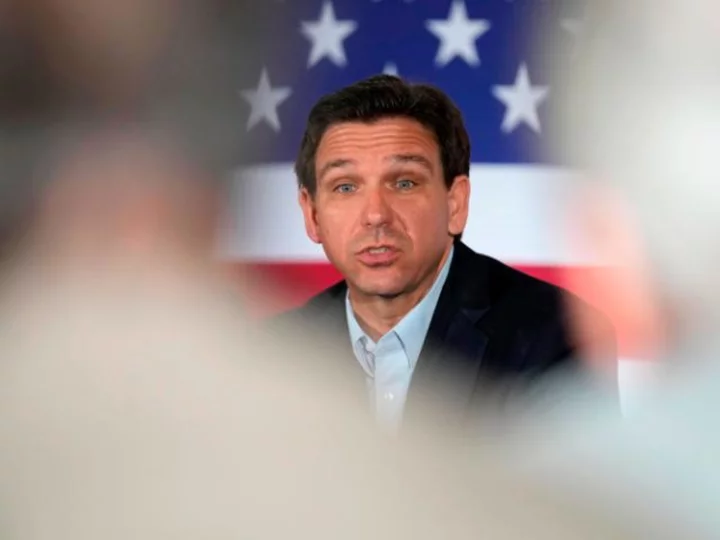
DeSantis ditches plans for hometown event as part of formal 2024 rollout
Florida Gov. Ron DeSantis is no longer planning to hold an event in his hometown of Dunedin as part of the formal launch of his campaign, a person with knowledge of the rollout plans told CNN.
1970-01-01 08:00
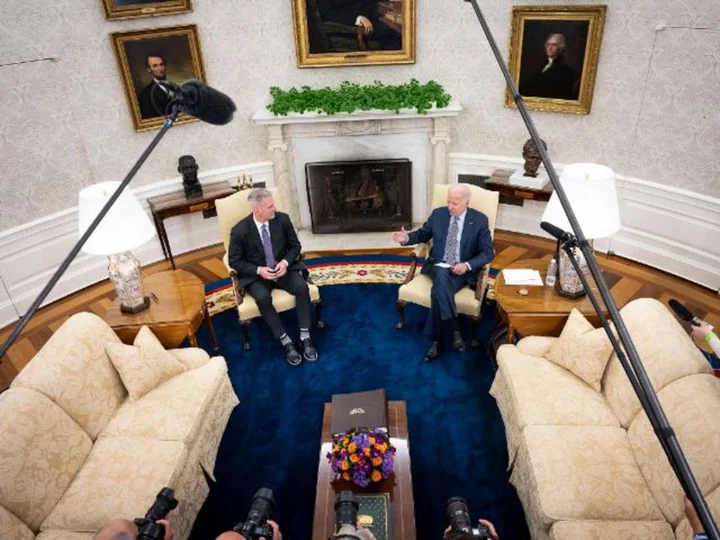
Why this Washington debt limit showdown is different
Investors and the public have been content to largely brush off the slow-motion Washington march toward a self-imposed economic catastrophe.
1970-01-01 08:00
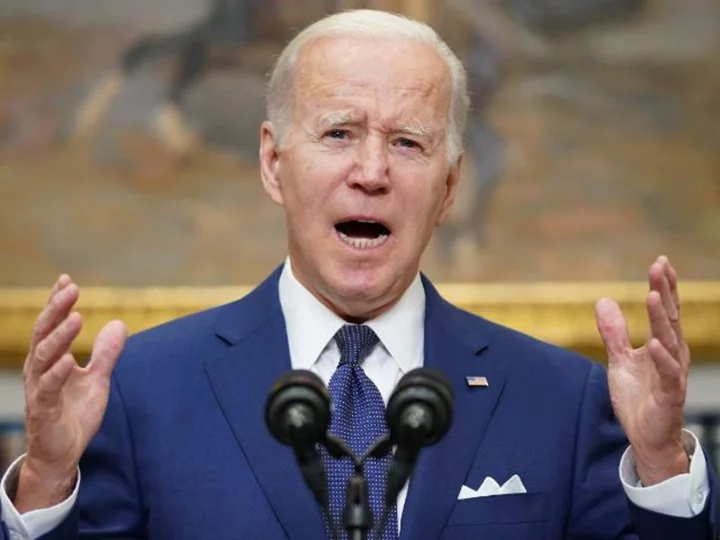
White House expands its playbook for responding to mass shootings in the year after Uvalde
When news broke of a shooting at an elementary school in Uvalde, Texas, one year ago, President Joe Biden was on his way back from Tokyo following a major international summit.
1970-01-01 08:00
